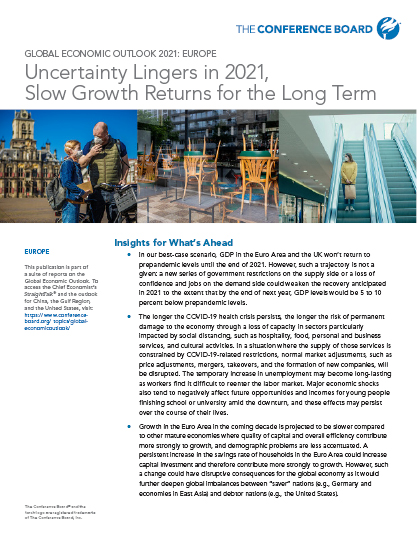2021 Europe: Uncertainty lingers in 2021, slow growth returns for the long term

- Authors:
-
Publication Date:
November 25, 2020
In our best-case scenario, GDP in the Euro Area and the UK won’t return to prepandemic levels until the end of 2021. Growth in the Euro Area in the coming decade is projected to be slower compared to other mature economies where quality of capital and overall efficiency contribute more strongly to growth, and demographic problems are less accentuated. A persistent increase in the savings rate of households in the Euro Area could increase capital investment and therefore contribute more strongly to growth. Trade openness truly makes a difference for growth in Europe. A simulation suggests that deglobalization, a top concern for the business sector, could detract as much as 0.2 percentage point from growth every year, weakening further the growth trajectory of the region.
- CREATE AN ACCOUNT SIGN IN
-
Only available to members. Become a member.












